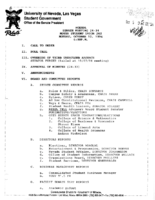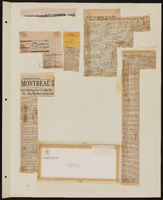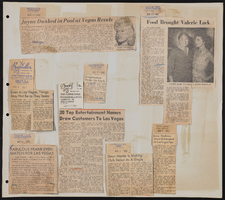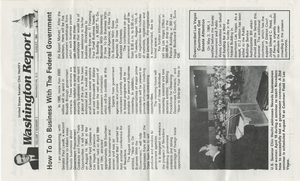Search the Special Collections and Archives Portal
Search Results
Jarbidge, Nevada Community Archives Collection
Identifier
Abstract
The Jarbidge, Nevada Community Archives Collection contains scanned images from seven archival collections and document the community of Jarbidge, Nevada from approximately 1910 to 2006. The materials were collected from various families living in Jarbidge in 2006 as part of a project led by Carrie Townley Porter. The images depict early Jarbidge structures, surrounding landscape, the Elkoro Mine, and residents of the area. Also included are images of certificates, correspondence, and newspaper articles relating to the families' histories. Also included in the collection are written summaries of ten oral history interviews of Jarbidge residents conducted in 2006. This collection contains digital surrogates only; the owners and Jarbidge Community Archives retain the originals.
Archival Collection
Florence McClure Photograph Collection
Identifier
Abstract
The Florence McClure Photograph Collection (approximately 1985-1997) consists of color photographic prints. Images show McClure and members of the Las Vegas, Nevada Community Action Against Rape (CAAR) organization that she co-founded with Sandi Petta in 1973. Also included are images of Nevada public figures and several travel images from China.
Archival Collection
Tony Wuehle Collection
Identifier
Abstract
The Tony Wuehle Collection documents the activities of freelance writer, college president, and poker expert Edwin "Tony" Wuehle of Michigan and Las Vegas, Nevada, between the years of 1950 to 2007. The collection consists of copies of Wuehle's regular columns, newsletters, and special articles as they were published in various journals and newspapers, especially those related to poker, the International Home and Private Poker Player's Association (IH3PA), education administration, and religious concerns.
Archival Collection

Transcript of interview with Edna Jackson-Ferguson, April 15, 1975
Date
Archival Collection
Description
On April 15, 1975, Edna Jackson-Ferguson (born 1897 in Overbrook, Kansas) provided a narrative-style oral history about her and her husband Jack’s experiences during the building of the Hoover Dam. Jackson-Ferguson provides many details about the way of life living in the camp with workers of the dam, the tasks required of those workers in building the dam, and some of the actual processes of pouring the concrete for the structure. She also talks about food, transportation, weather, and entertainment during the time. To conclude the interview, Jackson-Ferguson mentions some of the other job positions her husband held and their pride in being a part of the Hoover Dam’s construction.
Text

Meeting minutes for Consolidated Student Senate University of Nevada, Las Vegas, October 10, 1994
Date
Archival Collection
Description
Text





